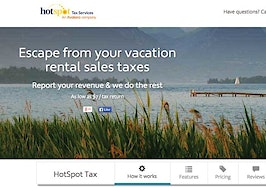Last time, I listed five characteristics that will help you filter out the money pits from the money pots either for yourself as an investor or for a client who is a potential real estate investor.
Here is the rest of my list:
6. Property management
Arguably, more important than the property is the management of the property. A great home in a beautiful neighborhood can yield horrible results if the management is poor. A property management company will take 6-10 percent of the monthly income. A quality property management company will return more than its cost in value add to the property.
If a property management company’s turnover and marketing procedures reduce vacancy by 10 percent and its screening process reduces property damage by 10 percent, then not only have you saved yourself time and a headache, you have increased your cash flow.
Refer to step 2: What is your goal? What management solution will meet the long-term financial goal?
7. Leapfrog money pits
When looking at rental properties, check the age and condition of the expensive fixes: furnace, roof, windows and appliances. Repairs for these can easily set you back $5-$15,000 apiece. If you want to invest in flips or fixer-uppers, budget appropriately. Typically, you will need to budget 10-20 percent above what you project major repairs will cost.
I use a general rule of thumb. I want to see an equity increase of at least the cost of the renovations. For example, if I buy a home for $100,000, and I spend $35,000, I want to see at least a $35,000 increase in value reflected in a sale price or rent (the property value should be at least $170,000). These deals typically present more risk and reward.
8. Private parking
When at all possible, buy properties with private parking. People will pay a premium for it. I’ve seen rents go $100 to $200 higher a month for private parking. Think about it, people in cities will pay at least that much each month for a monthly parking permit. Plus, it’s a convenience factor, too. People pay for convenience all day long.
9. Financial criteria
Learn how other successful investors buy. You will find some people are steadfast on the 1 percent rule. That is, monthly rent must not be less than 1 percent of the total purchase price. This is a form of the gross rent multiplier — the simplest type of ratio. Other ratios, such as a cap rate, will give you a more detailed look at the property but are also more susceptible to skewing observed in situations such as maintenance deferment or simple misreporting.
Most markets do not offer properties that fall within the 1 percent rule. Some markets do provide these properties, but they can be terrible properties to buy. Again, talk to other investors and ask what their investment criteria is. You will find many investors are in a niche. Talk to them, and you will begin to develop your own niche. Remember older properties = higher expense ratios.
10. Product type
Property types typically have advantages and disadvantages depending on the market. These are general and not absolute. I know many investors who have not followed these and been successful.
Condos and townhouses: They are typically difficult because of homeowners association fees. You might buy it for less, but the increased expense ratio is too heavy for your cash flow statement.
Homes: You will typically pay higher rent-to-purchase-price ratios, but on the flip side, there is typically more equity increase over time. Remember, you can sell a house to a homeowner or an investor. You can sell an apartment only to an investor.
Multifamily: You will typically see more cash flow and less equity increase. When you are buying, you are competing only with investors. When you are selling, you are offering only to investors.
Again, each market will be different, but this is a general rule. Larger multifamily properties follow a different set of rules. Value is heavily weighted on income of the property. Incremental increases in income due to value additions or management efficiencies impact the incremental value. Market conditions affect cap rates, but net operating income sets the tone for value.
11. Profit when you buy not when you sell
You make your money (meet your goal) on the purchase, not on the sell. When you overpay, you will find that you are always struggling with cash flow. When you try to sell it, the property will either sit on the market forever or sell at a loss.
A couple of ways to see if you are overpaying include looking at previous closings in your area. Review neighborhood conditions to indicate value, and determine whether the property will require substantial repairs or updates to make it marketable.
The most important step in this process is taking a look at your balance sheet and your cash flow statement to determine specific goals. If you keep these two steps in mind through the entire process, you will be better positioned to make smarter, more profitable investment decisions.
Read “11 characteristics of a profitable rental investment: Part 1” here.
This post was written by Jake Durtschi, the owner of Jacob Grant Property Management located in Idaho Falls, Idaho. Jake and his team manage over 400 rental properties in east Idaho. He is a successful real estate investor and has been featured on several reputable industry podcasts.



